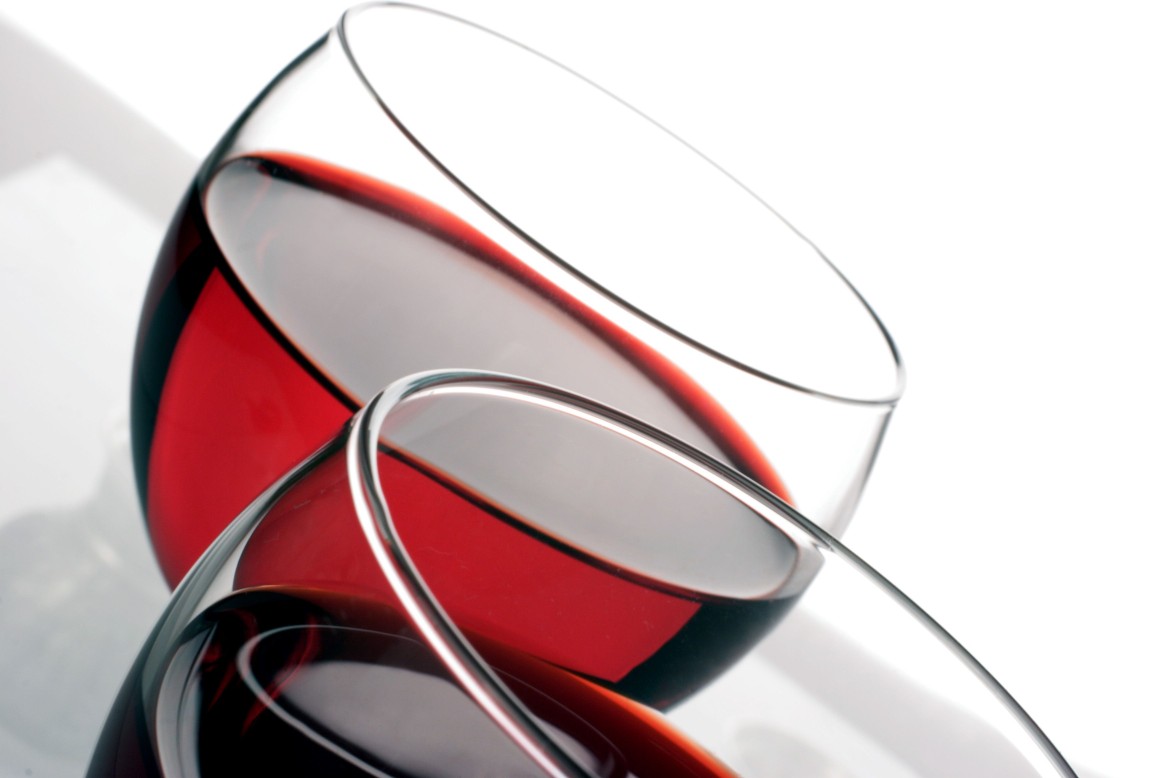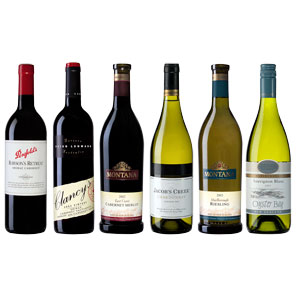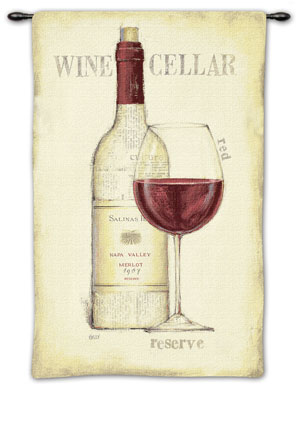Wine Investment
The underlying principles of wine investment boil down to the laws of supply and demand. On the supply side, there are relatively few investment grade labels, whose production levels remain more or less fixed. On the demand side, there are a growing number of high net worth individuals around the world seeking to own and/or drink these wines. Ergonomically, the only way to ease the pressure is for prices to go up. 
Fine Wine Investment has many advantages over other forms of investments. It benefits from being stable, easily realizable, consumable and at low risk. Above all else, due to decreasing availability, there is ever increasing demand. Globally recongnised as one of the steadiest form of investment, it is generally unaffected by recession, interest rate changes and stock market fluctuations. Fine Wine is easily stored and generally increases in quality the longer it is left cellared. As people's perception of this form of investment grows, so has its popularity and demand. People do not like to discuss their retirement plans or insurance premiums amongst friends around the dinner table, but they do like to talk about the value of their wine. Only 1% of the world's wine production is investment grade wine. As with the oldest rule in any Economics textbook, the demand and supply sets the price. This rule works entirely to the investors' advantage. It becomes more imminent when the Fine Wine approaches its maturity, a time deemed by many as the prime spot to indulge in it. The demands of these wines are stemmed from an increasing number of collectors; mainly from London, Singapore, China, America and Russia as well as Japan and Hong Kong. As a bottle of Fine Wine ages, it is highly sought after, which drives the demand up further. In an industry where demand usually exceeds supply, fine wine never fails to attract mobs of investment savvy audience Investment grade wine is also become more desirable and therefore more valuable over time. The wine ages and comes into its drinking window, it begins to be consumed making it even more rare, which in turn adds yet more upward pressure on prices. Wine is less volatile than stocks and shares, making it a less risky investment. Moreover it is not highly correlated with the stock market, which makes it attractive to investors looking to diversify a portfolio. And if the market does crash, you can at least take solace in drinking up your position.
When the market isn't in the middle of strong bull run, as it currently is, wine becomes a real stock picker's market, which generally requires a great deal of expertise, understanding and knowledge. In other words it's very easy to make some expensive mistakes unless you know what you are doing. For instance, the value of wines like Valandraud, once the darling of the market in the 90's has plummeted in the last few years. It's well worth remembering that wine prices can go down as well as up. Even as the market is generally moving up, particular wines will certainly move down. There are no dividend payments and there are the costs of storage and selling which have to be factored in. Both eat into profitability. Some wines may not turn out to as good as initially predicted. Once in bottle, wines are frequently re-rated. A negative re-assessment from 98 points to 94 may well result in a fall in value. This is another reason why you should only buy investment grade wine from reputable merchants or proven investment specialists.
To be regarded as a good investment, a wine requires all or most of the following attributes: It must be an instantly recognised label or brand with a long track record of quality and high to very high prices It must come from a good or great vintage and be highly rated by leading wine critics on both sides of the Atlantic It must have strong, consistent global demand for previous vintages of similar quality. It must show consistent upward price movement beyond a minimum set return. It must have the ability to age and improve over a long period of time.

Generally, the received wisdom when it comes to wine investment is to stick to the very great 'trophy wines' from Bordeaux and from the best vintages. The best Bordeaux investment vintages include: 1959, 1961, 1982, 1986, 1989, 1990 1996, 2000, 2005
Wine should only be a small part of your total investment portfolio. Moreover, you should not invest more than you can afford to lose.
DO Develop a good relationship with your merchant or specialist wine investment company. Not only will you get better advice, you are more likely to get preferential treatment regarding highly sought after wines - particularly if you have bought good quantities of wine from them in the past. Most serious collectors/investors will also develop relationships with several merchants. DO compare prices. The spread between merchants' prices for the same wine can still vary enormously despite greater transparency because of the internet. To quickly compare prices visit, www.winesearcher.com. Another good place for competitive, real-time prices is the Vintage Wine Fund's www.vwftrading.com. DO check the provenance and condition of the wine before you buy it. DO make sure that your wine is stored in perfect conditions so that it will mature properly and predictably. For longer term maturation, wine requires the correct temperature and humidity together with a lack of light and vibration. DO try to buy amounts of three to five cases per chateaux. Larger quantities are always more interesting to Trade Buyers. DO keep the wine in bond with a reputable professional storage company or wine merchant. Make sure that your wine is kept separate from merchants stock and is clearly identified as your own. Make sure that your wine is insured to its full market value.
If you are investing for the medium to long term, DON'T bank on quick returns. You may be lucky in that some wines will go up rapidly in value. Generally, wine prices don't go up in a linear fashion but tend to experience fairly short periods of upward activity. Timing is therefore everything when it comes to buying and selling fine wine. If you are speculating in wine over the short term, you may see some exceptional returns on your investment in the current bull run. But such speculation will always be a much more risky and volatile endeavour compared to a longer term investment strategy. DON'T buy wine which you happen to like, hoping it will go up in value. Stick to the tried and tested investment wines. Personal taste is irrelevant and has no place in investment decisions. DON'T buy wine en primeur from a new merchant. If the merchant goes bankrupt you could be left high and dry with no wine to show for it.
CONSIDER buying a few large format wines en primeur as these big bottles are relatively rare and often command a significant early re-sale premium over standard bottle sizes. However, you should only buy trophy wines from great vintages. Do not buy large format Yquem. Half bottles of Yquem trade at a premium because they are consumed more often. GO for a small number of high value items - rather than having lots of cases of more modest wines amounting to the same value. Not only do the top 100 point trophy wines tend to generate more profits, the storage costs of having a large number of cases will eat into your profitability.
At Auctions From a Merchant or Broker Specialist Wine investment Companies Wine Investment Funds
At Auctions To a Merchant or Broker Online
 You could ask your merchant to value it. If the wines are in good condition and stored under bond, you should be able to get a figure quickly over the phone. For more substantial and complicated collections cellared at home, a private valuation may be required. Another way would simply be to take the lowest prices on winesearcher.com and deduct 10% as the broker's margin to leave you with a net value. A third way would be to subscribe to an on-line subscription-based product from liv-ex.com called 'Cellar Watch'. This allows investors to value their cellar using the most up-to-date prices.
< < Read more on Stock Investment You could ask your merchant to value it. If the wines are in good condition and stored under bond, you should be able to get a figure quickly over the phone. For more substantial and complicated collections cellared at home, a private valuation may be required. Another way would simply be to take the lowest prices on winesearcher.com and deduct 10% as the broker's margin to leave you with a net value. A third way would be to subscribe to an on-line subscription-based product from liv-ex.com called 'Cellar Watch'. This allows investors to value their cellar using the most up-to-date prices.
< < Read more on Stock Investment
|
|
Home |
Retirement Age Act |
Retirement Planning |
Retirement Lifestyle | Copyright © 2005-2011 Retiree.SG |
